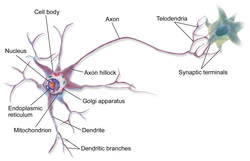As my first reply received no replies, let me try again.
There is no final mystery...not for science.
Meaning. There will be always be mysteries, and there will always be more questions than answers.
Even with our current understanding of Relativity and Quantum Mechanics, there are some parts of these respective fields, that we are yet to observe and test.
Maybe we will be finally test those unanswered mysteries (in Relativity or QM) some years or decades or centuries from now, when our technology meet up with our inquiring minds (eg the still theoretical parts of GR & QM). Maybe there are no possible answers, because they are ultimately unobservable and untestable.
But the things with science, they have never delve with absolutes, because there no such thing things as “absolute”.
When science look for evidences, they are compared to the hypothesis, to see if the observe reality (evidences) meet up with the specifications or premises of the hypothesis.
If yes, then there is a probability is true. If no, then the probability it is false, and when that happen, then either the hypothesis is wrong, or the hypothesis was never falsifiable in the first place, especially if there are no evidences whatsoever; so you either try to understand what went wrong with the hypothesis or you discard the hypothesis altogether.
That’s how science work. The evidences are based on the limited observation that are available to us.
If we looked at the history of astronomy, it is started with star gazing with the naked eye, ie no telescopes because it wasn’t invented until Galileo’s time. The telescopes enabled the astronomers to see more than the times when they didn’t have telescope.
But the telescopes constructed then (telescopes before 1919) only give us limited range of vision. Objects like Andromeda, Triangulum, Virgo A, and some other objects were viewed as nebulas hence misidentifications, not as galaxies of their own. Before 1919, there was only one galaxy, the Milky Way.
In 1919, Edwin Hubble looked through the newly built and corrected our past observations of Andromeda and Triangulum are galaxies , not nebula. The Hooker Telescope was the largest optical telescope at that time, extending the range of vision. The universe became a lot larger than the Milky Way.
Throughout the 20th century, bigger and better optical telescopes were built for observatories. But what we can view are still limited, and eventually we found another way to extend how we observe and measure even more distant stars and galaxies, by using and detecting EM, like infrared, X-ray, microwave, gamma rays. Hence, the invention of radio telescopes.
And still both optical and radio telescopes were limited, then they started launching into space, orbiting unmanned space observatories, both with optical and radio capabilities. That extended our vision more than ever before, but that vision is still limited. We still observe and detect if there are life on other planets outside of our solar system.
On every occasions our technology improved a bit, we learn bit more, but what we have managed to learn, it is limited, so there are always more to learn.
Our knowledge in astronomy have been incremental, coming in stages. 1919 opened up the universe to us, but even with our current knowledge and current technology, we only just got started.
This is why with science, there will always be mysteries and the truth behind to discover.
It is never ending, and therefore there are no absolute certainty, and there is no such thing as “final mystery” or “ultimate mystery”.
Planck understand this. We can only understand nature through observation, but the discoveries or answers we may find, may only be small.
The only people who talk about absolute, ultimate and perfection, are people in philosophies and in religions and spirituality.


